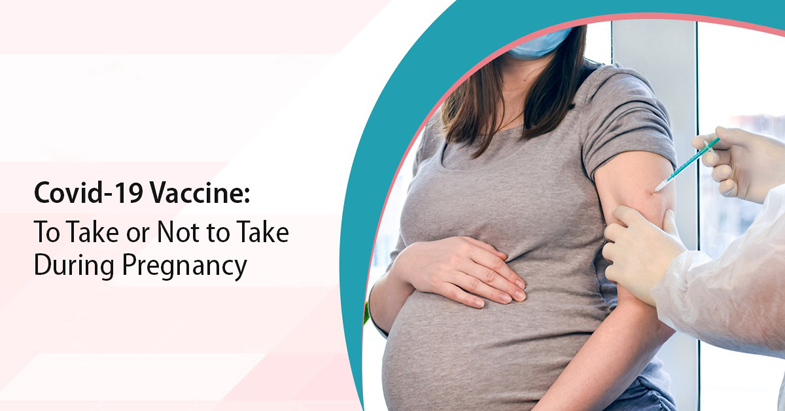
As the number of individuals who have taken the COVID-19 vaccine rises, so do the anecdotal stories about its unseen side effects. Some women have claimed that after taking the shot, their menstrual period has gotten lighter, heavier, or the duration changed.
To better understand these abnormalities, as a fertility specialist in Kolkata, I have decided to answer some of the frequently asked questions about the Covid-19 vaccine and menstruation, pregnancy, and breastfeeding.
Covid-19 vaccines and menstruation
Can the vaccine be administered when a woman is menstruating?
While there is a lot that remains yet to be learned about menstruation, there is not enough evidence to support that a COVID-19 vaccine can induce problems with menstruation. There is, in fact, no endocrine, immunological, and endocrine basis for such a consideration. If you are still wondering if it is a good idea to take the vaccine when menstruating, the answer is always a big YES! Women should take the vaccine even if they are menstruating.
Covid-19 vaccine and pregnancy
The Federation of Obstetric and Gynaecological Societies of India (FOGSI), an organization representing obstetrics and gynecology practitioners in India, acknowledges that there is limited data on the use of COVID vaccines available in India during pregnancy.
- However, the data derived from animal studies and sciences have not shown teratogenic or fetal, or neonatal effects of the vaccine. As matters stand in our country, every individual needs protection from the deadly COVID-19 infection.
- We are in the midst of the second wave. We must work actively to prevent future waves and the vaccine is the best long-term solution in this respect.
The protection should extend to both pregnant and lactating women.
The real benefits of vaccinating lactating and pregnant women far outweigh the remote and theoretical risks of vaccination. That being said let us look at the following:Can vaccines be administered to a pregnant woman who has already been infected in the past?
A pregnant woman is at risk in pregnancy if she is infected with the coronavirus. Vaccination is, hence, recommended even if the woman had the infection in the past. For the general population, vaccination must be deferred for 12 weeks from the infection or about four to eight weeks from recovery.
Can a breastfeeding woman take the vaccine?
There is no evidence of harm if a vaccine is administered to a breastfeeding woman. Researchers are finding possible benefits from the passage of antibodies to the neonate. Breastfeeding women should be vaccinated per the usual schedule and method used for the general population.
Is pregnancy testing before administering the vaccine necessary?
This is not mandatory and creates a hurdle to vaccine acceptance. It is not recommended to test for pregnancy before taking the Covid-19 vaccination.
Should the Covid-19 vaccine be avoided in the preconception period or for women undergoing fertility treatment, including assisted reproduction?
The answer is no. Women must take the vaccine when available before pregnancy is confirmed. There is no need to delay fertility treatments or pregnancy for taking Covid-19 vaccines. There is currently no evidence that vaccine administration affects miscarriage or fertility rates.
Can Covid-19 vaccines cause infertility issues in men and women?
The answer is that there’s zero evidence supporting that a COVID-19 vaccine can interfere with fertility. Remember that COVID-19 vaccines are incapable of casting reproductive control via proxy. Nothing is. This is because it is a vaccine and not a mere spell.
Is it advisable to receive Covid-19 vaccines in between IVF treatment or Embryo Implantation?
You can do either of the following:
- Get vaccinated and wait for a month to two months after completing the 2nd dose of Covid-19 vaccine to start an IVF cycle or,
- If you are already in between your IUI/IVF/ICSI cycle and want to get the vaccination done, consult your fertility specialist and proceed.
For pregnant ladies, the general population, or lactating women who take the vaccine can still be infected even after taking two doses. This is why, it is essential to follow preventive measures like wearing a mask, hand washing, and social distancing.


